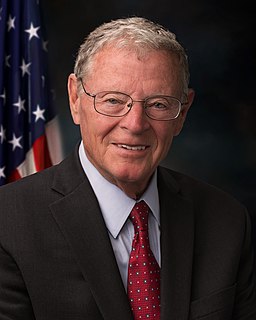A Quote by Noam Chomsky
Iran has been calling for it for years, and the Arab countries support it. Everyone except the United States and Israel support it. The U.S. won't allow it because it means inspecting Israel's nuclear weapons. The U.S. has continued to block it, and in fact blocked it again just a couple of days ago; it just wasn't widely reported. Iran's nuclear program, as U.S. intelligence points out, is deterrent, and the bottom line is that the U.S. and Israel don't want Iran to have a deterrent.
Related Quotes
I want to reassert again the position of the United States that with regards to Iran, we will not allow Iran to develop a nuclear weapon, period. We will not allow them to develop a nuclear weapon, and we will exert all options in the effort to ensure that that does not happen...The United States stands firmly with Israel, and we have a rock solid commitment to the security of Israel and to the security of its citizens.
People in the United States don't like to hear it, but puritanical Islam has been on the rise because of our unequivocal policy of absolute support for Israel, regardless of what Israel does - even if they invade Lebanon and bombard a major city like Beirut, full of civilians. Israel has atomic bombs, but we go nuts if any Arab country or Iran develops even nuclear capabilities.
The issue has two dimensions. One is the legal dimension and the other one is the issue at the realpolitik. [In the] legal realm, we believe in equal rights for all people in all nations. If Israel, the United States, Russia, Pakistan, other countries, China, have the right to have a nuclear program and nuclear bomb, Iran, too, must have that same right. Now, at the realm of realpolitik, because there is a global consensus against Iran, and because there are all manner of dangers facing Iran, I am opposed to this program.
My reading of the threat from Iran is that if Iran acquires nuclear weapons, it is an existential threat to the State of Israel and to other countries in the region because the other countries in the region will feel compelling requirement to acquire nuclear weapons as well. Now we cannot a second Holocaust.
Even as we implement the nuclear deal and welcome our Americans home, we recognize that there remain about differences between the United States and Iran. We remain steadfast in opposing Iran's destabilizing behavior elsewhere, including its against Israel and our Gulf partners and its support for violent proxies in places like Syria and Yemen.
Israel's discourse with the United States on the subject of Iran's nuclear project is more significant, and more fraught, than it is with Europe. The U.S. has made efforts to stiffen sanctions against Iran and to mobilize countries like Russia and China to apply sanctions in exchange for substantial American concessions.





































